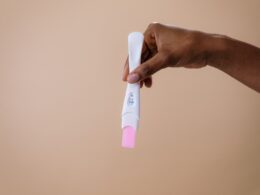If you’re thinking about stopping birth control and want to get pregnant, it’s important to know how long it might take for fertility to return. Each person’s body reacts differently, and age plays a role as well.
The good news is, most women conceive within a year of stopping hormonal birth control.
Fertility Rates After Stopping Birth Control
The good news is that pregnancy rates tend to return fairly quickly after discontinuing many hormonal birth control methods. But it’s important to remember that each woman’s body is different, and that not everyone will get pregnant the month they stop their birth control.
If you’ve been using a combination hormonal birth control method like the pill or vaginal rings, you can generally expect to become fertile within about a month after stopping them. This is because these types of birth control contain both estrogen and progestin, which are the hormones that inhibit ovulation. If you’ve been using a hormonal IUD, your fertility may take up to three months to return after you stop using it.
You should also know that it takes a little longer to get pregnant if you’ve been using an injectable hormonal birth control method like Depo-Provera. The shots are given every three months and work by releasing the hormone progestogen into your bloodstream to prevent ovulation. This type of birth control is very effective at preventing pregnancy, so you’ll need to use another method of contraception until your fertility returns after the injections have stopped working.
On the other hand, you can usually become pregnant right away if you’re using a barrier birth control method like condoms (male or female), the diaphragm, spermicide, or the sponge. In fact, you can get pregnant the first time you have penis in vaginal (PIV) sex without using a condom or your diaphragm.
Injections (Depo-Provera)
Depo-Provera (medroxyprogesterone acetate) is an injection that prevents pregnancy by stopping ovulation and thickening cervical mucus. It’s usually given in your arm or buttock, though it can be injected under the skin. It also works in the same way as a birth control pill or patch, but it’s more effective because you don’t have to remember to take it daily.
Your first injection is typically given within the first seven days of your menstrual cycle, but it can be started at any time after that if you and your doctor are confident that you’re not pregnant. If you start the shot at a different point in your cycle, you’ll need to use additional contraception like condoms for a week.
You’ll get a Depo shot every three months from a nurse or your primary care provider. It’s important to make sure you have access to a clinic that will schedule your shots on time so you don’t miss any. If you’re worried about needles, ask your provider about getting Depo-ProveraSubQ, which goes into your skin rather than the muscle.
When you stop Depo, it can take several months for your period to return and for you to become fertile again. If you want to try to conceive, you can talk to your healthcare provider about ways to optimize your fertility, like prenatal vitamins and weight loss.
Oral Contraceptives
Combined oral contraceptives (the pill) contain artificial versions of female hormones that help to keep the uterus lining healthy and stop sperm from reaching an egg (ovulation). These pills can also lower your risk for certain cancers, including womb, cervical and breast. They are highly effective at preventing pregnancy if taken regularly. However, if you miss one pill or more, pregnancy can occur, especially in the first three months.
The NHS recommends using another form of birth control until you have a natural period after stopping the pill, as this helps to reduce the risk of pregnancy. You should also start to take folic acid supplements to increase your chances of having a healthy baby.
Some women may find that the pill causes side effects, such as nausea and vomiting. These can improve over time, but you should consult your doctor if you continue to experience them.
Women who use the pill should always use a backup method of contraception, such as condoms, as the pill does not protect against sexually transmitted infections. Women with certain medical conditions, such as uncontrolled high blood pressure, migraines with auras or known ischemic heart disease are at increased risk of a serious side effect called ectopic pregnancy (when the fertilized egg implants outside the uterus) and should not use the pill.
IUDs
IUDs (intrauterine devices) are small T-shaped pieces of plastic that a doctor places in your uterus to prevent pregnancy. There are two types: copper and ones that release the hormone progestin. Both types prevent pregnancy by making it harder for sperm to fertilize an egg or implant in the uterus. IUDs and implants can prevent pregnancy for up to several years.
They are very effective forms of birth control, with fewer than 1 in 100 women becoming pregnant within a year of using an IUD. But they aren’t foolproof. There’s a risk of ectopic pregnancy, which happens when the embryo grows outside your uterus, usually in your fallopian tubes or the cervix. A doctor can end an ectopic pregnancy by giving you medication or performing surgery.
There’s also a risk of having an IUD expelled (rejected by your body) or moving out of place (displacement). This usually happens soon after the IUD is inserted. Your OB-GYN or healthcare provider will teach you how to feel for the string on your IUD and check it’s still in place. If it’s not, you should use additional contraception until your doctor can check it again.
Most IUDs can be inserted at any time during your menstrual cycle, but it’s often best to have one put in while you’re having your period. This is when your cervix is most open and can make the procedure more comfortable. Some IUDs like Paragard have other health benefits, such as light periods or fewer periods.









